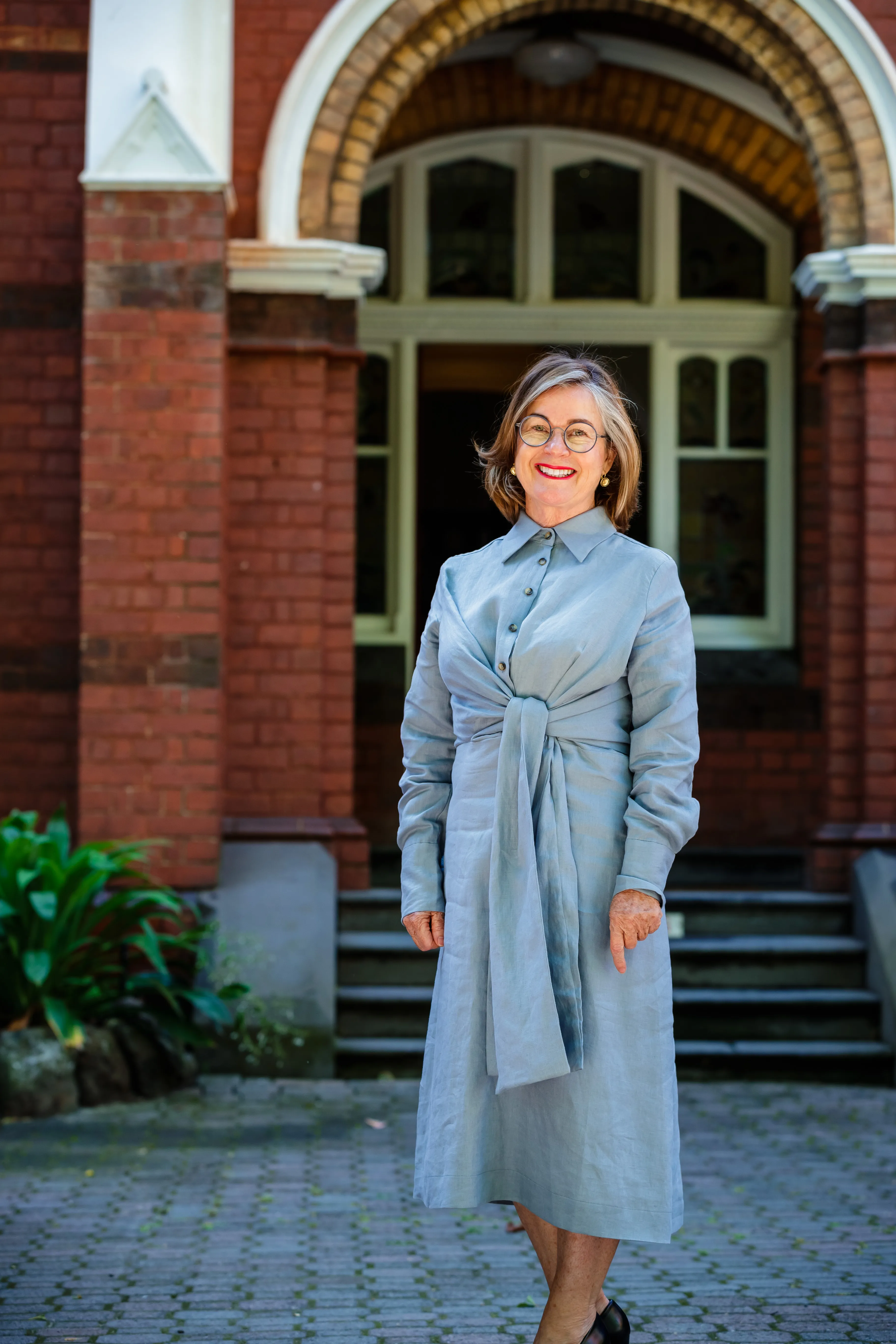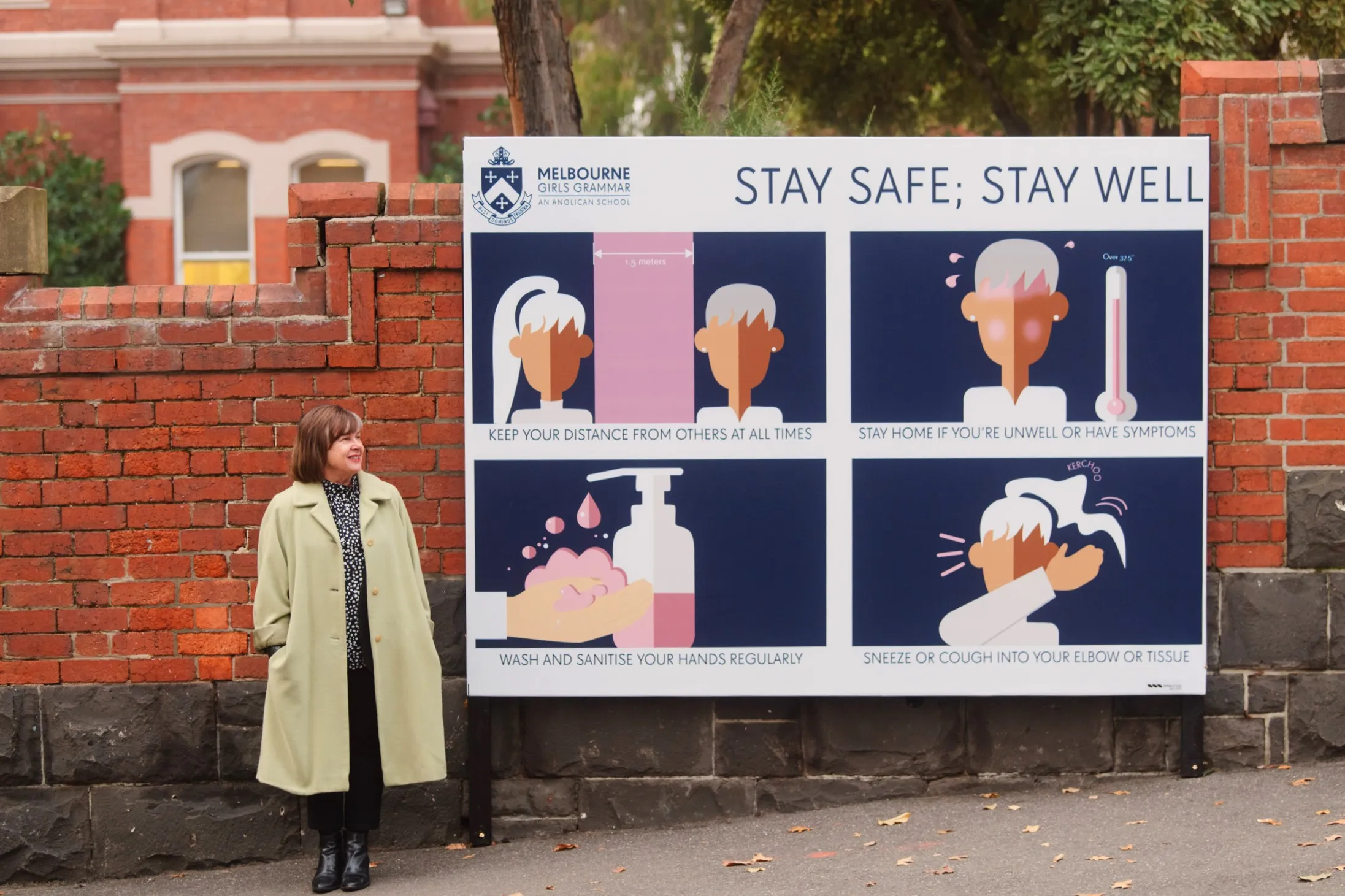

Principal, Dr. Toni E. Meath


Principal, Dr. Toni E. Meath
From the Principal
As an experienced educator and Principal, I have worked closely with teachers over many years. My regular contact with teachers, visiting their classrooms and engaging in daily conversations around their teaching and their students’ learning gives me insights into their day-to-day practice. When COVID-19 swept across the planet and required society to go into isolation, our teachers were well prepared to manage the shift to an online and remote learning environment.
During these unprecedented times, high expectations and learning together were critical and I believe our teachers were well placed to design the learning for our students in their ‘home classrooms’. The unfolding of the COVID-19 pandemic united our teachers and they worked closely and collaboratively to meet the needs of students across Victoria. Even now, they continue to draw down on a central phenomenon – their Teacher Knowledge. It appears at last that teachers will gain the societal recognition and respect that they duly deserve; recognising the value of Teacher Knowledge in a new and evolving pedagogical landscape is the situation we continue to find ourselves in.
Shulman‘s celebrated words, embraced by teachers around the world, ‘those who can, do [and] those who understand, teach‘ (1986, p.14) are highly significant when discussing Teacher Knowledge. Historically, Teacher Knowledge has focused on content, however, it has become increasingly apparent that teacher's subject knowledge and their pedagogical knowledge are crucial to effective teaching and student learning.

Teaching is a practice requiring competencies in both content knowledge and pedagogy. It is this specialised knowledge that teachers use when unpacking and delivering any new curriculum framework, such as remote learning, that requires a multi-faceted understanding of what they know and what they do. Teaching is an applied profession and specialised knowledge embraces theoretical, practical, abstract, and concrete understandings and most importantly, it requires practitioners to link theory with practice, the abstract with the concrete. We witnessed examples of this across all faculties, and ages and stages of learning.
In times that required supporting and scaffolding learning for children and young adults through online learning and the delivery of lessons in remote settings, it is teacher competency in the pedagogical practice, and agility in adapting content knowledge to a new delivery model that makes learning come alive. This knowledge also involves teacher understanding of the preconceptions required before learning can take place within different settings, such as the remote classroom.
Teaching is a practice requiring competencies in both content knowledge and pedagogy. It is this specialised knowledge that teachers use when unpacking and delivering any new curriculum framework, such as remote learning, that requires a multi-faceted understanding of what they know and what they do. Teaching is an applied profession and specialised knowledge embraces theoretical, practical, abstract, and concrete understandings and most importantly, it requires practitioners to link theory with practice, the abstract with the concrete. We witnessed examples of this across all faculties, and ages and stages of learning.
In times that required supporting and scaffolding learning for children and young adults through online learning and the delivery of lessons in remote settings, it is teacher competency in the pedagogical practice, and agility in adapting content knowledge to a new delivery model that makes learning come alive. This knowledge also involves teacher understanding of the preconceptions required before learning can take place within different settings, such as the remote classroom.


Principal, Dr Toni Meath outside Phelia Grimwade House



Principal, Dr Toni Meath outside Phelia Grimwade House


Principal, Dr Toni Meath outside Phelia Grimwade House
The focus of teachers’ work in supporting our Grammarians involved designing learning that was more than transactional, it was transformational, that is, the learning was two-way. Our focus has always been to deliver student learning to support both wellbeing and academic growth, not a one way distribution of content knowledge.
In this edition of Information Exchange, I want to take a moment to thank a group of true heroes of our time - our teachers. In every school across the world, we must look to our teachers and say thank you for their knowledge and dedication. In our 2020 COVID-19 world there may just be a silver lining.
We have all been given the gift of time, it has brought us together and asked of us to be productive in new and different ways, and I believe we have recognised the true value of our teachers.
“Teaching is an applied profession; with specialised knowledge teachers embrace theoretical, practical, abstract, and concrete understandings and most importantly, they link theory with practice and the abstract with the concrete.”
The focus of teachers’ work in supporting our Grammarians involved designing learning that was more than transactional, it was transformational, that is, the learning was two-way. Our focus has always been to deliver student learning to support both wellbeing and academic growth, not a one way distribution of content knowledge.
In this edition of Information Exchange, I want to take a moment to thank a group of true heroes of our time - our teachers. In every school across the world, we must look to our teachers and say thank you for their knowledge and dedication. In our 2020 COVID-19 world there may just be a silver lining.
We have all been given the gift of time, it has brought us together and asked of us to be productive in new and different ways, and I believe we have recognised the true value of our teachers.
“Teaching is an applied profession; with specialised knowledge teachers embrace theoretical, practical, abstract, and concrete understandings and most importantly, they link theory with practice and the abstract with the concrete.”
The focus of teachers’ work in supporting our Grammarians involved designing learning that was more than transactional, it was transformational, that is, the learning was two-way. Our focus has always been to deliver student learning to support both wellbeing and academic growth, not a one way distribution of content knowledge.
In this edition of Information Exchange, I want to take a moment to thank a group of true heroes of our time - our teachers. In every school across the world, we must look to our teachers and say thank you for their knowledge and dedication. In our 2020 COVID-19 world there may just be a silver lining.
We have all been given the gift of time, it has brought us together and asked of us to be productive in new and different ways, and I believe we have recognised the true value of our teachers.
“Teaching is an applied profession; with specialised knowledge teachers embrace theoretical, practical, abstract, and concrete understandings and most importantly, they link theory with practice and the abstract with the concrete.”




















